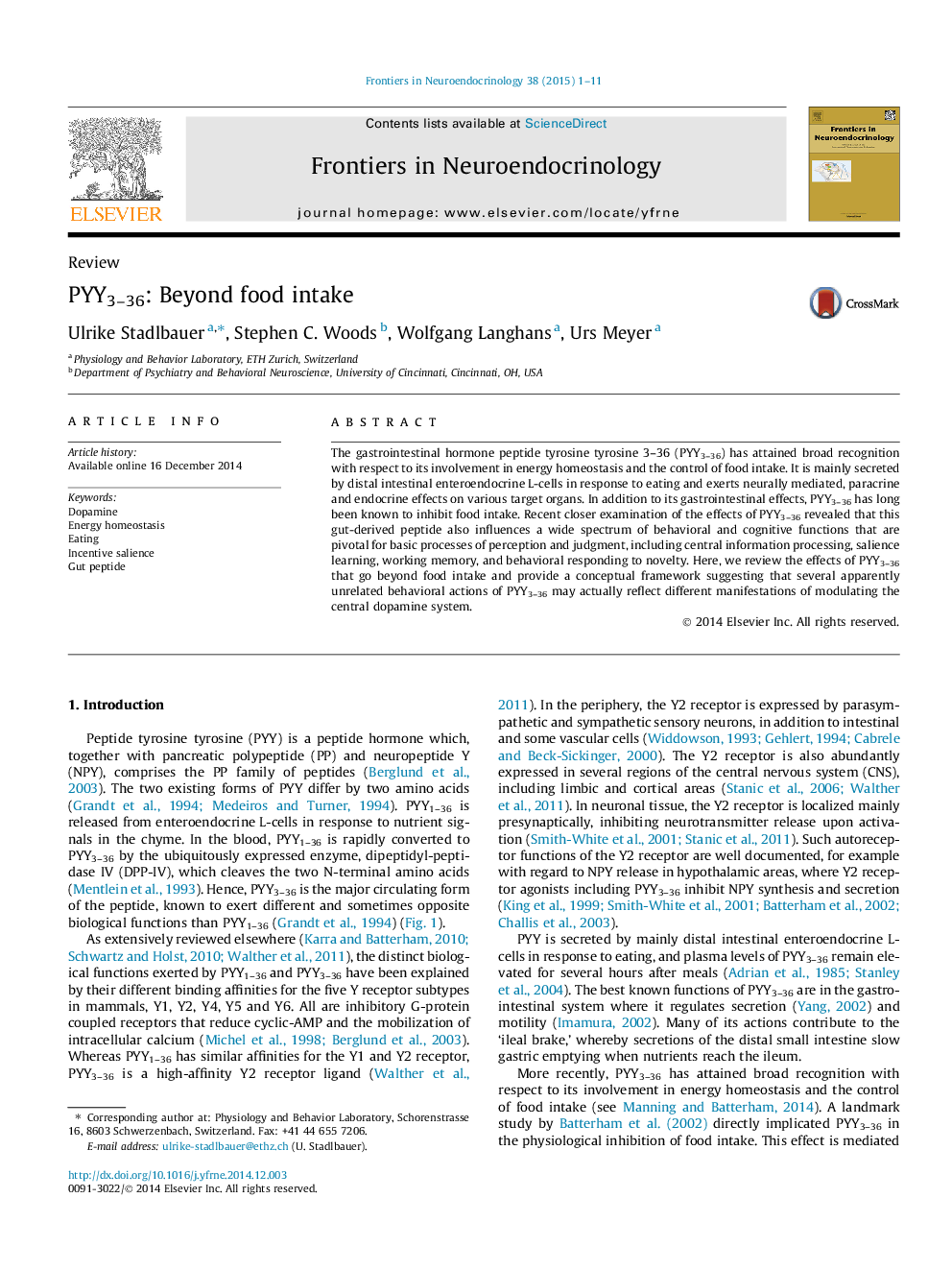| Article ID | Journal | Published Year | Pages | File Type |
|---|---|---|---|---|
| 2799290 | Frontiers in Neuroendocrinology | 2015 | 11 Pages |
•The gastrointestinal hormone PYY3–36 inhibits food intake in numerous species.•PYY3–36 modulates numerous other behavioral and cognitive functions beyond eating.•PYY3–36 induces pro-dopaminergic effects in the mesolimbic system.•The various behavioral effects of PYY3–36 may be interrelated via dopamine.
The gastrointestinal hormone peptide tyrosine tyrosine 3–36 (PYY3–36) has attained broad recognition with respect to its involvement in energy homeostasis and the control of food intake. It is mainly secreted by distal intestinal enteroendocrine L-cells in response to eating and exerts neurally mediated, paracrine and endocrine effects on various target organs. In addition to its gastrointestinal effects, PYY3–36 has long been known to inhibit food intake. Recent closer examination of the effects of PYY3–36 revealed that this gut-derived peptide also influences a wide spectrum of behavioral and cognitive functions that are pivotal for basic processes of perception and judgment, including central information processing, salience learning, working memory, and behavioral responding to novelty. Here, we review the effects of PYY3–36 that go beyond food intake and provide a conceptual framework suggesting that several apparently unrelated behavioral actions of PYY3–36 may actually reflect different manifestations of modulating the central dopamine system.
